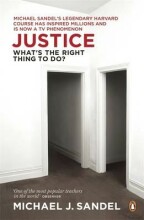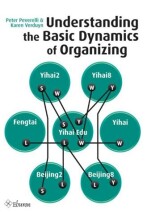Doing the right thing - Do we own ourselves? / Libertarianism
9 important questions on Doing the right thing - Do we own ourselves? / Libertarianism
Some people think that inequality (between rich and poor) is unjust and
they favor taxing, Other disagree. They say its not unfair (when
there's no fraud/force), it depends on the choices people make in a
market economy. F.e. take 1 million from Gates (75 billion), give it to
100 needy families. Collective utility would go up more than Gates
utility goes down. What are the 2 main objections?
2 Taxing the rich to help the poor is unjust (libertarianism). It violates a fundamental right. Taking money is coercive. It violates the liberty to do with their money whatever they please.
Describe the key libertarian statement:
During the 1980s libertarian ideas found prominent expression in the pro-market, anti-government rhetoric of Ronald Reagon and Margaret Thatcher. Describe the vision of Hayek and Friedman:
-Friedman (economist) argued that many widely accepted state activities are illegitimate infringements on individual freedom. Social security, or any mandatory, government-run retirement program is an infringement (inbreuk/schending). He wonders if we are entitled to use coercion to prevent someone from doing what he chooses to. Other examples: minimum wage laws, employment discrimination or occupational licensing requirements.
- Higher grades + faster learning
- Never study anything twice
- 100% sure, 100% understanding
What is meant with the free-market philosophy (Nozick).
Nozick argues that distributive justice depends on 2 requirements. Which 2?
2 Justice in transfer (money made through free exchanges in the marketplace or from voluntary gifts).
> If the answer to both question is yes, you are entitled to what you have and the state may not take it without your consent.
Scenario: People pay basketball players to play. In the end Michael Jordan gets more salary than anyone else, as a result the initial distribution (the one considered just) no longer obtains. The new distribution arose wholly voluntary. What does this scenario illustrate according to Nozick? (2)
1 Liberty upsets patterns. Anyone else who believes that economic inequality is unjust, will have to intervene in the free market, repeatedly and continuously, to undo the effect of the choices people make.
2 Intervening in this way (taxing Jordan to support the disadvantaged) not only overturns the results of voluntary transactions; it also violated Jordan's rights by taking his earnings. It forces him to make a charitable contribution against his will.
According to Nozick, tax is forced labor. What does this mean?
Describe the principle on self-ownership (Nozick):
Summarize the 2 points of Friedman (libertarianism)
2 Libertarians have 2 arguments regarding drugs:
A Self ownership: if people like to use them, its up to themselve.
B If you make drugs illegal, you will create criminality (utilitarianism)
The question on the page originate from the summary of the following study material:
- A unique study and practice tool
- Never study anything twice again
- Get the grades you hope for
- 100% sure, 100% understanding































